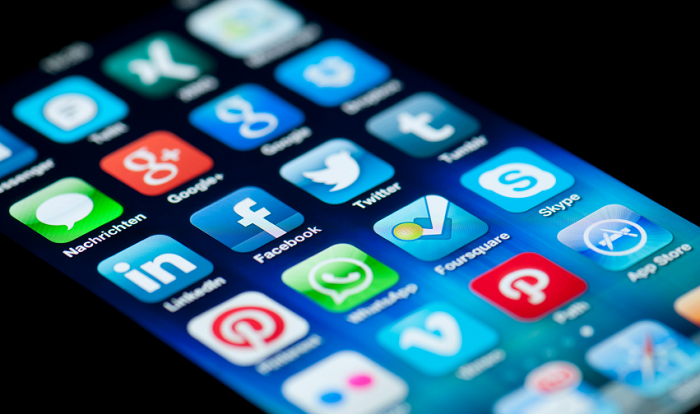
Social media for Ghana’s Election 2016 and beyond
Ghana’s seventh consecutive general election since the restoration of democracy in 1992 is just about two months away.
Though the election are expected to pass without any major mishap as usual, many stakeholders are not oblivious of the fact that the peace of Ghana, so far, has been achieved through the sustained mobilisation of security forces and efforts of many stakeholders during every election.
Therefore, like all previous elections, many civil society organisations (CSOs) and faith-based organisations have begun their campaigns and the deployment of various strategies to ensure peaceful polls and the Ghana Police Service has given every indication that it is not leaving anything to chance. However, the biggest apprehension of the Ghana Police Service for peaceful polls is the threat social media poses because of its ubiquity in all spheres of life today and possible misuse in the upcoming election.
Social media in Ghana
Today, Ghana has close to 27 million mobile phone subscribers, about eight million Internet users and nearly 3.5 million Ghanaians on Facebook alone (which is more than half of Ghana’s population in 1957), while data penetration in Ghana stands at about 40 per cent of the total population.
This has increased Internet and mobile-based tools for sharing information among Ghanaians, like elsewhere in the world, to unprecedented heights with the potential for unforeseen challenges, including becoming an incendiary point for violence.
This fear was recently expressed by the Ghana Police Service ahead of the election. Though the Ghana Police Service has since rescinded its decision to ban social media in the 2016 election, the ensuing debate against the planned action produced an important school of thought for the Ghana Police Service: that the police would be better served taking advantage presented by social media platforms to ensure peaceful election. But, what are some of the prospects of social media to the security efforts of the police?
Social media and policing
All over the world, evidence suggests that law enforcement agencies are tapping into social media platforms not just to nab wrongdoers, but also for crime prevention. For instance, in the wake of the September 11, 2001 terrorist attacks in New York, the State Police launched the See Something Send Something Smartphone application which allows citizens to alert authorities of threats.
It is also true that during the Summer 2011 riots in the UK, police forces extremely benefited from established connections and trained practices on social media. Similarly, when the Huntington Bank branch in McDonald was robbed on March 31, 2014, the police posted the picture of the culprit through Facebook and within 48 hours, the culprit was identified leading to the eventual arrest because people could see the picture within seconds.
Currently, it is established that Police forces with strong social media presence have better relationships with the citizens largely because social media opens up a-two-way conversation with the public with a different tone. Again, the voice of the police on social media receives a high level of trust. As a result, social media users can be more forthcoming online. This helps law enforcement agencies to catch criminals. Social media is, therefore, found to be more effective than traditional print media for communicating with young people, majority of whom often get their news solely via social media.
In particular, the police all over the world is relying on social media for sting operations, crime prevention, community support, finding criminals, managing volatile situations, location-based monitoring and for increasing community awareness of crime, among others. Relying on social media in criminal cases can reveal a suspect's communications or whereabouts, establish motives and personal relationships, for instance.
Indeed, a 2014 survey conducted by the International Association of Chiefs of Police revealed that among the 600 law enforcement agencies surveyed, about 95 per cent implement social media; over 82 per cent make social media a primary investigatory tool and about 80 per cent agreed that social media helped solve crimes.
Way forward for the Ghana Police?
The social media space is growing at an extraordinary speed, making it difficult to keep pace with the latest developments. There is no doubt that social media, rather than traditional news outlets has ,therefore, become a key source of information about all forms of crimes and changing the swiftness with which the public learns about these acts.
The Ghana Police Service has seen a lot of innovations and retooling in recent times and the latest news that the Service would deploy drones in monitoring political activities for instance, was very refreshing. However, the Ghana Police Service needs to adopt a social media policy as illustrated by the US example.
The US has a policy on the official and personal use of social media and social networking services such as Facebook, Twitter, Flickr and YouTube. Further, President Obama's memo on Open and Transparent Government encourages federal agencies to use technology for quick communication and engagement with the public. However, social media tools can only be used for communicating with the public when there is a legitimate business case to do so and based on approval.
This must be the way forward for Ghana. There is the need for police social media strategy for public engagement. From university campuses to political party members across Ghana, there are various social media platforms that the police can take advantage of ahead of the election which can prove useful for peaceful polls.
For instance, social media platforms could prove valuable in corroborating information for immediate police response or and as a complementary source for evidence for police investigations. Many of these platforms can also be useful for locating potential witnesses in the election and beyond.
